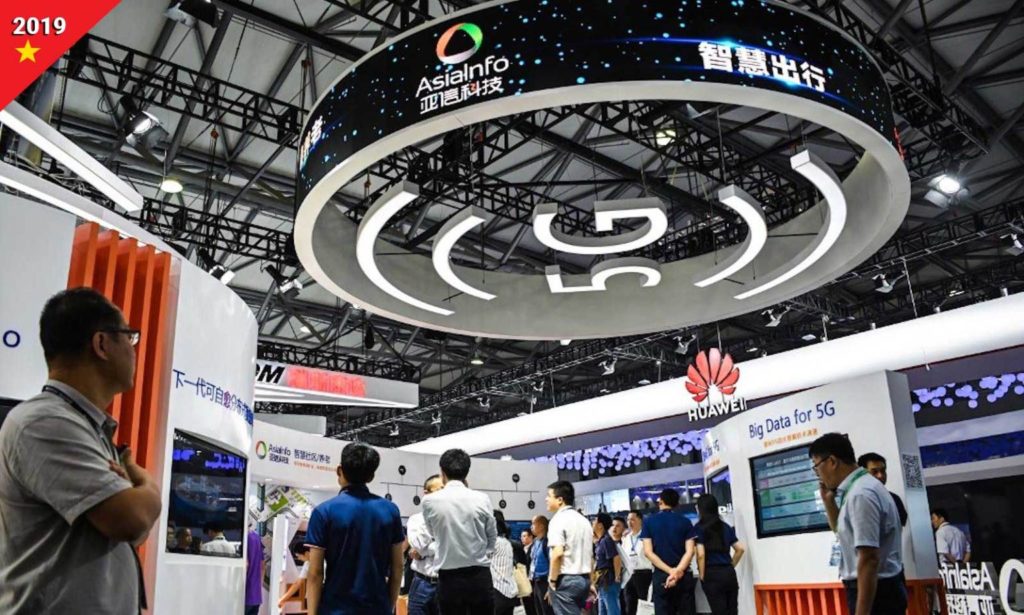温铁军:美国用了二十年,打造了收割全球的金融利器
7/07/2021
温铁军 是中国人民大学可持续发展高等研究院院长、《中国改革》、《改革内参》杂志社社长兼总编,知名农业专家。
Jul 4, 2021
Mar 6, 2021
Feb 20, 2021
金融筑牢大国博弈之盾
By 杜善凡
7/07/2021
从15世纪开始,起源于欧洲的地理大发现带来了大航海时代,此后的几百年时间里,世界经济在全球化的进程中曲折前行,而金融伴随着贸易全球化也渗透到世界各个角落,金融全球化势不可挡。

金融是“收割”全球财富的利器
金融全球化除了给世界各国带来贸易便利,给实体经济带来资金以外,也成了全球经济周期性危机的爆发点。尤其是最近的1997年亚洲金融风暴和2008年美国次贷危机引发的全球性金融海啸,均是以金融系统的崩溃为导火索,再蔓延到整个实体经济。
每次金融危机都是对全球财富的再分配。南美和东南亚一些国家和居民在过去十几年甚至是几十年中积累的财富在极短时间内归零,更有甚者背负上巨额债务。然而,在财富的重新洗牌中,掌握着流通货币“闸门”的国家和金融大鳄从中渔利,形成了对遭遇金融危机国家和居民财富的收割。这也是这些国家经济长期徘徊不前和低迷的原因之一。
新冠肺炎疫情这只“黑天鹅”对全球经济的侵蚀以金融市场的动荡为开始标志。各国为了救济经济,启动“印钞机”。根据IMF数据,截至2020年底全球主要十二大经济体,货币总供应量已经高达近100万亿美元。疯狂印钞背后是资产价格的飙升,全球股市、楼市、大宗商品、比特币等,几乎都创下了新高,居民生活成本飙升。曾经是南美最富裕的阿根廷在去年4月份疫情的首轮打击下就宣布外债违约,无力偿还;2021年初巴西在疫情和外债的双重打击下宣布政府破产;今年4月初,土耳其货币里拉崩盘。压死这些国家的最后一根稻草是什么?答案就是货币大幅贬值,直至失去法定货币的地位,这也是金融全球化给一国金融体系带来的摧毁性的打击。

中国免于被“收割”
保障金融安全,金融制度是外部之盾,而能够抵御深度冲击的更坚固的护城河则是内在经济的健康稳健运行。对于中国来说,免于两次金融危机带来的财富大洗劫最大的防护之盾是中国没有开放资本项下的自由兑换,相反南美和东南亚一些国家都是因为资本的可自由兑换,给了外资机构在外汇市场和股市进行操控的机会。资本大鳄为什么盯住东南亚和南美这些国家作为做空目标呢?深层次的原因还在于这些国家经济由于货币超发带来经济过热,出现了巨大的资产价格泡沫。股市、楼市、商品价格在外资大量涌入的情况下不断上涨,而当外资机构抛售本币计价的货币资产时,就会导致价格大幅下跌,在金融市场的表现就是股市大跌、汇市被做空、债市被做空,因为这种情况下,经济发展没有后劲,对未来的股市、债市和汇市全部看空。
中国从改革开放以来逐步融入世界经济,同样经历了两次金融风暴,但是中国的国内生产总值却从1997年的7.97万亿元增加到2020年的100万亿元,实现了11.5倍的增长。在亚洲金融风暴前的1996年,泰国的人均GDP是中国的4倍,2019年新冠肺炎疫情之前泰国的人均GDP仅达到中国的80%,可以说1997年的金融风暴让泰国的经济倒退了20年。相反,中国在此后的20-30年时间里,经济突飞猛进增长,持续保持全球最快的增速,这成为西方经济学界研究的课题,称为“中国发展奇迹”。
创造中国发展奇迹的力量是什么?这就要看每次危机背后,中国是如何推动经济逆势起飞。
其实在1997年亚洲金融风暴的时候,中国经济从高热变成平稳后,即所称的“软着陆”,马上进入了急剧的下滑。外贸乏力、内需不足、产能过剩、国有企业亏损、银行呆账坏账严重是当时经济面临的困境。由于之前经济过热而扩张的产能无法得到释放,造成高投入低产出低回报,财政金融形势非常不乐观。在这种情况下,中央做出决定——发展基础设施建设。首先是发行特别国债以补充商业银行资本金,半年后财政部再次增发1000亿元长期国债,分两年列入国家预算,此后追加到2000多亿,加上配套资金高达6000亿,主要用于支持东南沿海的基础设施建设。大量的高速公路开始修建,如今东部地区纵横交错的高速公路网络,就是成型于这一时期。大量的政府投资,直接驱动经济向前狂奔。而基础设施的大量建设反过来又促进了实体经济的快速增长。到2000年11月,当时的国家经贸委宣布,中国国有企业“三年脱困”目标顺利完成。三年后的中国,开始进入一个新的增长周期,此后的十年间,平均经济增速在10%以上。在2000年的时候中国高速总里程是1.63万公里,如今20年过去了,中国的高速公路里程达到了15万公里。
在这20年时间里,中国高速公路里程增加了近10倍,而中国的GDP却是实实在在的翻了不止10倍。强大的交通基建提升了中国经济社会发展速度,而强大的经济实力也在加速中国基础设施建设,两者形成相互促进的效果。其中以政府债务为基础的金融支持是中国基建能够造就中国速度的首要“功臣”。以国债、政策性金融债、政府产业基金等形式的各类投融资形式成为中国经济发展的“推进器”,这也就是政信金融的重要价值体现。
同样,在全球遭遇2009年美国次贷危机引发的金融海啸后,中国做出大规模基建计划,在全球经济低迷甚至下滑的情况下,中国在2010年的GDP达到59万亿元,超过曾经排名第二的日本成为世界第二大经济体。在这十年内,以高速铁路、高速公路、机场为代表的基建设施建设如火如荼推进,中国经济增长也成为带动世界经济增长的引擎。基建成长背后是中国制造的支撑,也让全世界更加深刻认识到“made in China”的威力。曾经依赖高价进口的基建设备居然也能成为出口创汇的来源,这得益于为满足大基建而打造的“重器”。这一阶段的基础设施建设的投融资形式更加多样化,不仅有国债、政策性金融债券的低息长期投入,而且增加了众多地方融资平台为地方基础设施建设筹措资金,通过发行信托,吸纳保险、社保等资金进入到基建中,为建设提速,扩大了规模。正是因为有政信金融参与其中,现在我们才能实现“坐高铁游遍中国”的愿望。
2020年的新冠肺炎疫情给世界经济带来了“急刹车”,世界很多人民因疫情陷入贫困,然而中国却向全世界宣布实现了全面脱贫,提前10年完成了联合国制定的减贫计划。中国33年(1987年提出扶贫攻坚计划到2020年全面脱贫)减贫脱贫路是伴随着从东到西的基础设施建设而来。基础设施建设的经济效益不是能用简单的数字来衡量的。

筑牢大国金融博弈之盾
人类进入工业文明以来,历次工业技术的革命都是重塑国际格局的时机,也是规则重新制定的时机。第四次工业革命即数字化时代已经来临,唯有下得先手棋才能在新的竞争格局和规则制定中占得先机。
在金融全球化的今天,金融越来越成为国际竞争博弈的“大杀器”,金融是收割全球财富的利器。2020年全球金融市场注入的巨大流动性将会给不同的国家带来哪些影响?如今我们已经看到国际原材料价格暴涨、资本市场不断冲高,在不可预见的新一轮经济周期来临之前,要避免成为全球金融链条上薄弱的一环,中国该如何应对?
答案可以在2020年新冠肺炎疫情之初在各省的发展规划和《中华人民共和国国民经济和社会发展第十四个五年规划和2035年远景目标纲要》里找到:
一是区域经济协调发展,主要是都市圈、城市群的打造,并辐射周边经济,东中西部产业联动,智慧城市建设,打造宜居宜业的生产生活环境,资源互补,协调发展;5G通讯设备的铺设,工业互联网的推广应用等。
二是新型城镇化和乡村振兴,相关投入包括健康、养老、市政等公共服务设施的完善。
三是国家综合立体交通网的建设,相关投入包括高铁、轨道交通、机场建设等。
四是碳达峰和碳中和,如特高压、新能源、新材料、传统能源企业的节能环保技术改造投入等等。
这些背后是国家继“十三五”在基建方面的投资的新一轮建设升级,这些升级为中国在下一阶段(2020-2050)的发展提供基础。
在“十四五”期间,投融资机制将在吸收“十三五”投融资创新经验的基础上更加高效、科学,平衡债务与经济效益的关系,更广泛地调动各类社会资本参与基础设施的发展,将居民的高储蓄转化为国家建设资金,让全民共享到经济发展的红利,让政府的投融资成为普惠全民的机会,从而形成金融体系的内循环。
大国博弈具有长期性,中国的发展同样是势不可挡。在全球重塑经济格局和金融格局过程中,政府投融资机制将成为大国博弈之盾。
* 本文已刊登于中华人民共和国财政部主管的《新理财》杂志2021年5月刊(总第358期),由政信投资集团与杂志社共同撰稿。作者杜善凡系中国政信研究院高级研究员。
China beating US by being more like America
Cultivating human capital will be essential if the US rather than China is to be the base of the next industrial revolution
By BRANDON J WEICHERT
4/25/2021

The United States transitioned from an agrarian backwater into an industrialized superstate in a rapid timeframe. One of the most decisive men in America’s industrialization was Samuel Slater.
As a young man, Slater worked in Britain’s advanced textile mills. He chafed under Britain’s rigid class system, believing he was being held back. So he moved to Rhode Island.
Once in America, Slater built the country’s first factory based entirely on that which he had learned from working in England’s textile mills – violating a British law that forbade its citizens from proliferating advanced British textile production to other countries.
Samuel Slater is still revered in the United States as the “Father of the American Factory System.” In Britain, if he is remembered at all, he is known by the epithet of “Slater the Traitor.”
After all, Samuel Slater engaged in what might today be referred to as “industrial espionage.” Without Slater, the United States would likely not have risen to become the industrial challenger to British imperial might that it did in the 19th century. Even if America had evolved to challenge British power without Slater’s help, it is likely the process would have taken longer than it actually did.
Many British leaders at the time likely dismissed Slater’s actions as little more than a nuisance. The Americans had not achieved anything unique. They were merely imitating their far more innovative cousins in Britain.
As the works of Oded Shenkar have proved, however, if given enough time, annoying imitators can become dynamic innovators. The British learned this lesson the hard way. America today appears intent on learning a similar hard truth … this time from China.
By the mid-20th century, the latent industrial power of the United States had been unleashed as the European empires, and eventually the British-led world order, collapsed under their own weight. America had built out its own industrial base and was waiting in the geopolitical wings to replace British power – which, of course, it did.
Few today think of Britain as anything more than a middle power in the US-dominated world order. This came about only because of the careful industrial and manipulative trade practices of American statesmen throughout the 19th and first half of the 20th century employed against British power.
The People’s Republic of China, like the United States of yesteryear with the British Empire, enjoys a strong trading relationship with the dominant power of the day. China has also free-ridden on the security guarantees of the dominant power, the United States.
The Americans are exhausting themselves while China grows stronger. Like the US in the previous century, inevitably, China will displace the dominant power through simple attrition in the non-military realm.
Many Americans reading this might be shocked to learn that China is not just the land of sweatshops and cheap knockoffs – any more than the United States of previous centuries was only the home of chattel slavery and King Cotton. China, like America, is a dynamic nation of economic activity and technological progress.
While the Chinese do imitate their innovative American competitors, China does this not because the country is incapable of innovating on its own. It’s just easier to imitate effective ideas produced by America, lowering China’s research and development costs. Plus, China’s industrial capacity allows the country to produce more goods than America – just as America had done to Britain
Once China quickly acquires advanced technology, capabilities, and capital from the West, Chinese firms then spin off those imitations and begin innovating. This is why China is challenging the West in quantum computing technology, biotech, space technologies, nanotechnology, 5G, artificial intelligence, and an assortment of other advanced technologies that constitute the Fourth Industrial Revolution.
Why reinvent the wheel when you can focus on making cheaper cars and better roads?
Since China opened itself up to the United States in the 1970s, American versions of Samuel Slater have flocked to China, taking with them the innovations, industries, and job offerings that would have gone to Americans had Washington never embraced Beijing.
America must simply make itself more attractive than China is to talent and capital. It must create a regulatory and tax system that is more competitive than China’s. Then Washington must seriously invest in federal R&D programs as well as dynamic infrastructure to support those programs.
As one chief executive of a Fortune 500 company told me in 2018, “If we don’t do business in China, our competitors will.”
Meanwhile, Americans must look at effective education as a national-security imperative. If we are living in a global, knowledge-based economy, then it stands to reason Americans will need greater knowledge to thrive. Therefore, cultivating human capital will be essential if America rather than China is to be the base of the next industrial revolution.
Besides, smart bombs are useless without smart people.
These are all things that the United States understood in centuries past. America bested the British Empire and replaced it as the world hegemon using these strategies. When the Soviet Union challenged America’s dominance, the US replicated the successful strategies it had used against Britain’s empire.
Self-reliance and individual innovativeness coupled with public- and private-sector cooperation catapulted the Americans ahead of their rivals. It’s why Samuel Slater fled to the nascent United States rather than staying in England.
America is losing the great competition for the 21st century because it has suffered historical amnesia. Its leaders, Democrats and Republicans alike, as well as its corporate tycoons and its people must recover the lost memory – before China cements its position as the world’s hegemon.
The greatest tragedy of all is that America has all of the tools it needs to succeed. All it needs to do is be more like it used to be in the past. To do that, competent and inspiring leadership is required. And that may prove to be the most destructive thing for America in the competition to win the 21st century.
Source: https://asiatimes.com/2021/04/china-beating-us-by-being-more-like-america/
Feb 18, 2021
Aug 4, 2020



